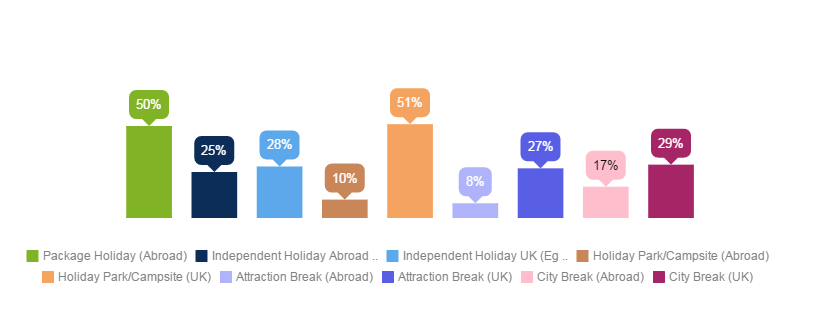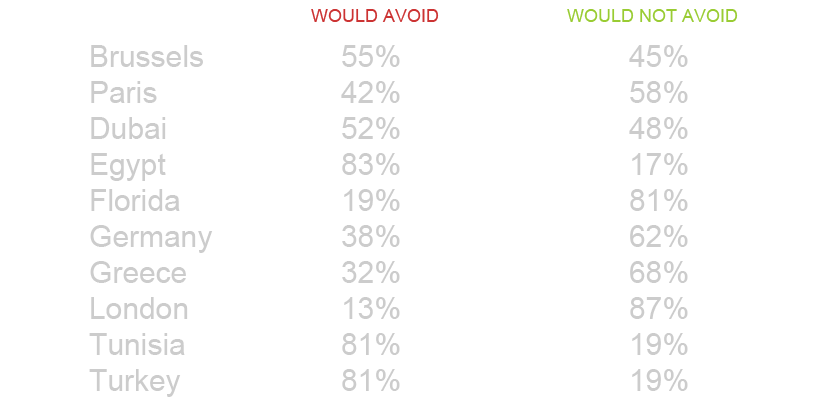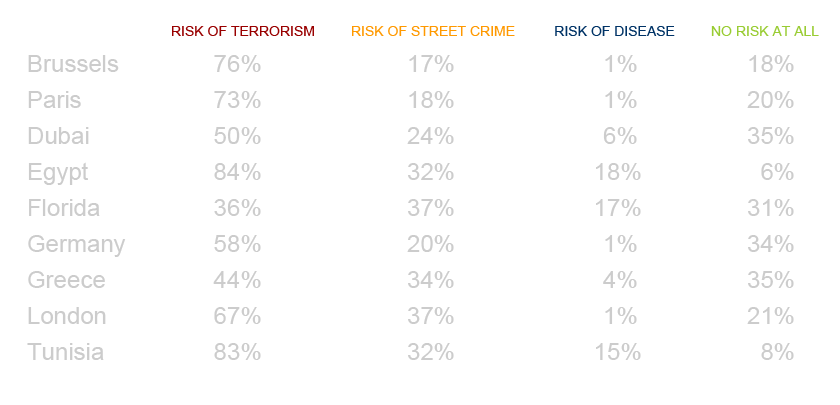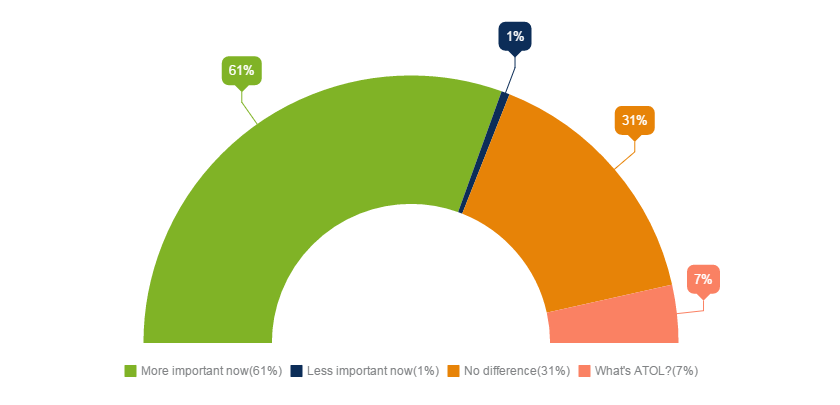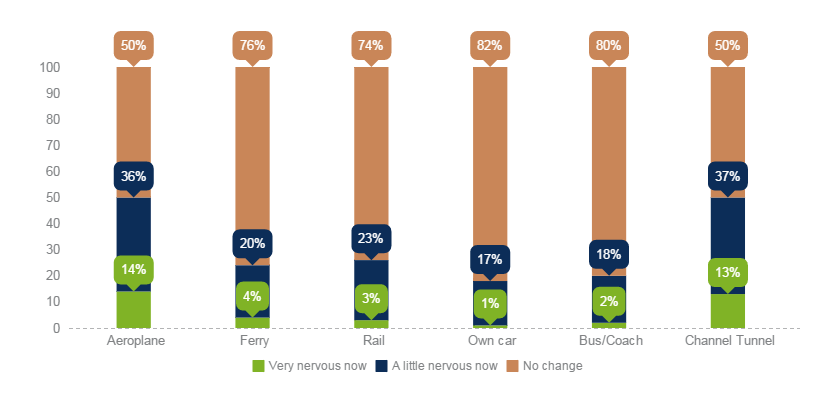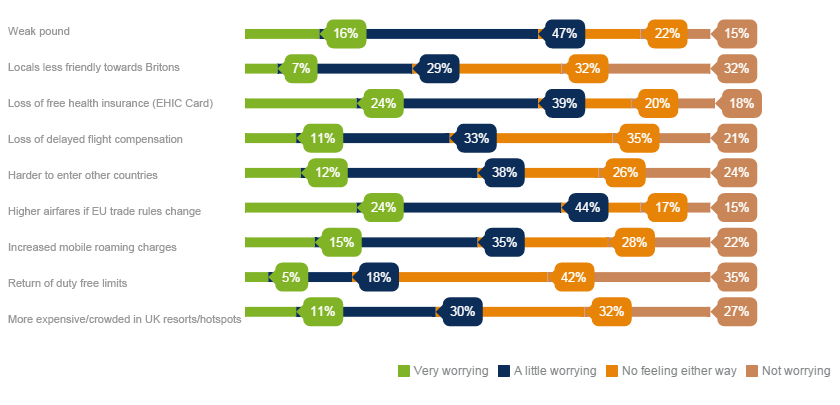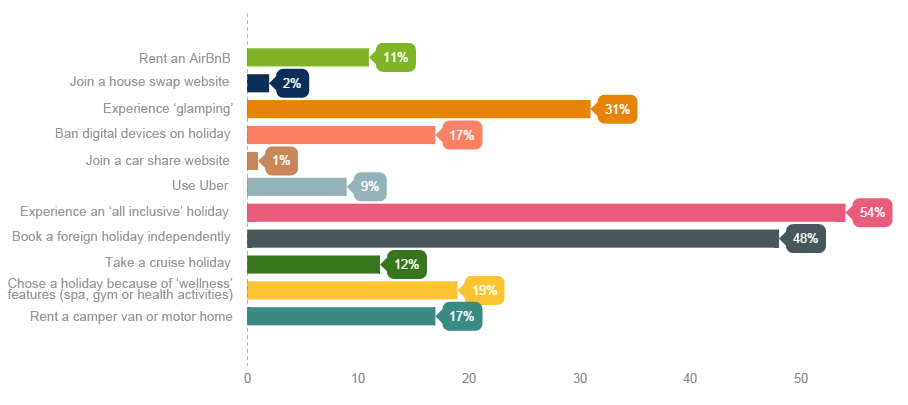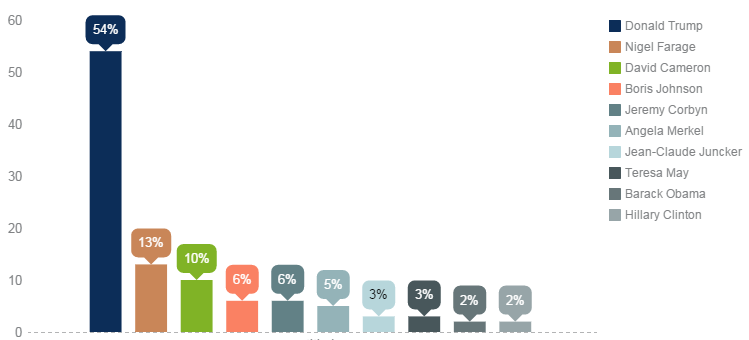2 September 2016
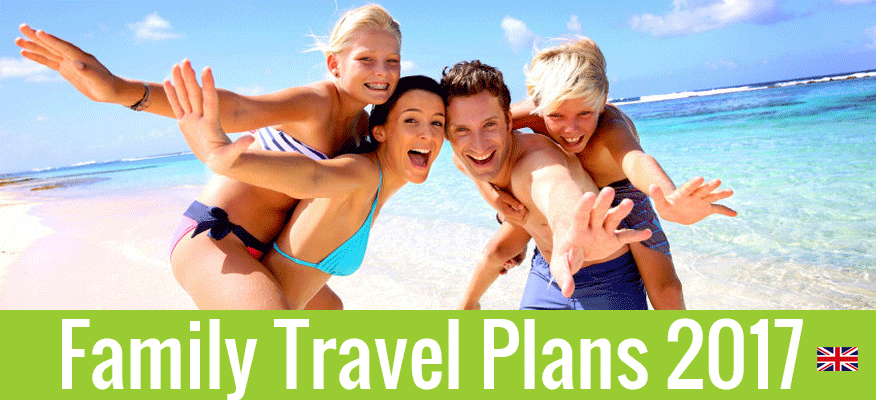
FamilyBreakFinder has surveyed over 1,300 of our members about their travel plans for 2017.
From holiday spending, AirBnB rentals and UK ‘staycations’, to the possible impact of Brexit, terrorism and political trouble abroad, the results provide a useful insight into the current mindset of UK families when it comes to travel.
To see any of the charts below in detail, right click and open in a new tab. This report is available in a downloadable PDF. For more information about our research projects, contact us.
About our members
FamilyBreakFinder‘s 140,000 members are largely UK parents with children under 16. They join our site – for free – to access money-saving travel deals, expert family travel advice and inspirational ideas for holidays, activities and days out. Find out more about FamilyBreakFinder.
Survey fieldwork was conducted 11 August 2016 – 14 August 2016. A total of 1336 respondents took part in an online questionnaire distributed by email.
Family Travel Plans 2017 – Research Results
1. Thinking of your 2017 holiday plans, which of the following types of trip do you expect to take? (Tick all that apply)
The most popular choice of holiday among UK families is the domestic break at a holiday park or campsite – 51% expect to book one for 2017. Second is the package holiday abroad, which half (50%) of all Britons expect to enjoy next year.
2. Thinking generally about your finances in 2017, which of the following MOST applies to you?
Asked about their personal financial outlook for 2017, overall the mood of the nation is flat: 29% said they felt ‘Negative – I may have a bit less to spend on holidays’ while 50% expect to spend the same on their travels. Only 21% said ‘Positive – I may have a bit more to spend on holidays’.
3. To what extent will recent events such as terrorism, health scares or political trouble affect your choice of holiday destination next year?
Events abroad are having an impact on UK holidaymakers’ decision-making. The majority (80%) said terrorism, health scares or political trouble will affect their choice of holiday destination.
4. Which of these places would you avoid due to recent events such as terrorism, health scares or political trouble?
Egypt, Tunisia and Turkey are all countries that the large majority of UK holidaymakers would currently avoid. Brussels and Paris, which both experienced terrorist attacks in 2016, would be avoided by 55% and 42% of Britons. Dubai receives visits from around 1 million British people per year – but according to these findings, 52% are now cautious of choosing Dubai as a holiday destination.
5. If you are expecting to STAY IN THE UK for your main holiday next year, to what extent is this decision due to events abroad such as terrorism, health scares or political trouble?
Of those families that expect to stay in the UK next year for their holidays, HALF (50%) say their decision has been influenced by events abroad. For 14%, terrorism, health scares or political trouble have made a big difference in deciding to have a ‘staycation’. For 36%, these worries have made SOME difference on their decision. Meanwhile 50% that are staying in the UK are doing so regardless of events abroad.
6. The British Foreign Office advises tourists whether countries are safe or not to visit. If you had to guess, what do you think the Foreign Office says about these places?
Perceptions of what the British Foreign Office advises about travel to destinations contrast somewhat with whether or not UK holidaymakers would travel there (see Q4). For example, while 36% expect the Government to say there’s a risk of terrorism in Florida, and 37% expect a risk of street crime, only 19% of holidaymakers (Q4) would avoid visiting the Sunshine State. London too is somewhere that most Britons are happy to visit (87%) despite expecting the risk of terrorism to be ‘officially’ high. Greece is expected to be an official terrorist risk by 44% – but compared with Germany, the UK and France, which are all ‘high risk’ according to the Foreign Office, Greece is only judged by the UK Government to have a ‘general risk’.
7. Compared to when you booked travel last year, how important is it now that a holiday company offers ATOL protection?
ATOL protection – which ensures holidaymakers don’t lose out if their travel firm goes bust – has become significantly more important. On the back of the recent demise of lowcostholidays, a majority of 61% are say it’s more important now that a company offers ATOL protection compared to last year.
8. Thinking about TYPES OF TRANSPORT, has your attitude to using them changed due to events abroad such as terrorism, health scares or political trouble?
When it comes to air travel, 36% of UK holidaymakers are now a little nervous of flying and 14% are very nervous due to events such as terrorism. Car travel is the least frightening way to get around – although not through the Channel Tunnel perhaps, as half of UK holidaymakers are now either ‘a little nervous’ or ‘very nervous’ of using it.
Q9. Thinking of future holidays and the *possible* negative effects of ‘Brexit’, how would you rate the following?
Considering the possible impact ‘Brexit’ could have on travel for Britons, higher airfares (68%) and loss of the European Health Insurance Card (63%) are the most worrying aspects for respondents. Duty free limitations (23%) and hostility from other nationalities abroad (36%) are the least worrying aspects.
Q10. How many of the following have you done?
Q11. How many do you EXPECT to do in 2017?
AirBnB can expect to take more bookings from UK holidaymakers in 2017. While 7% of UK families have used the service to date, 11% of respondents expect to use it next year. Meanwhile Uber, house share websites and car share websites are not among the services UK families expect to use more in 2017. Glamping’s rise in popularity is evident; while only 19% of respondents have experienced it so far, a large 31% aspire to experience glamping in 2017, justifying the ongoing investment in yurts, shepherd’s huts and teepees by campsites and farms across the country. The market for health and wellness breaks may have peaked; 19% have experienced them so far, but there is no significant interest among the majority (81%) in booking a health-orientated break in 2017.
Q12. Taking off on your holiday, which of the following politicians would you LEAST like to be sat next to on the plane?
It’s a good job Donald Trump travels to and from the UK by private jet – 54% of respondents would not like to be sat next to him on a plane. Meanwhile his presidential candidate rival Hillary Clinton and her fellow Democrat Barack Obama fare much better, with only 2% choosing them as people they wouldn’t want to buckle up alongside.
Enjoy this report?
There’s more. We also have details of spending expectations by holiday type (see Q1). Budgets are broken down by: Under £300; £300-499; £500-999; £1000-1999; £2000-4999; and £5000+. If you’d like to access this data as well as demographic information about our sample, please contact us.
All data and charts featured in this report are available for reuse free – providing credit is provided. Please attribute to: ‘FamilyBreakFinder – Family Travel Plans 2017′.

